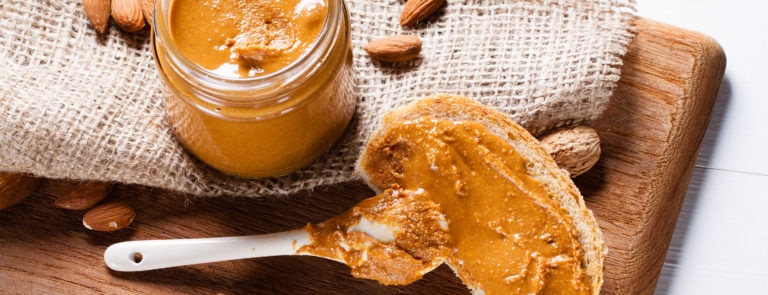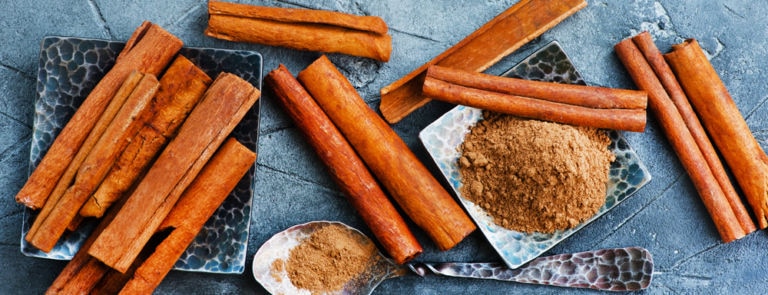10% off £35
Code:SAVE
9 great sources of protein for vegetarians

Are you a vegetarian with a passion for protein? Here are our top veggie protein sources you can add to any meal, with tips from our in-house nutritionist
Summary
1Why do we need protein?
Protein is an incredibly important part of our diet and nutrition – indeed, it’s often referred to as a building block of our bodies. Known as...
2How do vegetarians get protein?
Some of the most renowned high-protein foods are meat, fish and seafood, but that doesn’t mean vegetarians…
39 of the best vegetarian, high-protein foods
We’ve included some ideas for vegetarian protein sources that you can include in your meal plan…
There’s no doubt about it – meat eaters generally have it easy when it comes to protein.
Protein is essential to staying fit, healthy and energised, which is why you’ll find it in plenty of animal sources. And if the thought of animals as protein makes you shudder (or in other words you’re a vegan or vegetarian), then you’ll be looking for other ways to bring it into your diet.
“There are a variety of amino acids in different plant protein sources, such as lentils, chickpeas, beans, wholegrains, nuts, seeds and peas. These foods are going to give you a huge range of vitamins and minerals,” says Emily Foster, one of our nutritionists. As a specialist in sport, she has a particular interest in protein, especially for joints, bones and muscles.
Going beyond those, there are plenty of other vegetarian protein sources that you can have on your menu – stay tuned for our favourites. Our list includes some dairy based options, so skip those if they’re not for you.
Why do we need protein?
Protein is an incredibly important part of our diet and nutrition – indeed, it’s often referred to as a building block of our bodies. Known as a macronutrient, it helps to grow, repair and maintain different muscles, organs, skin, hair and nails, all of which rely on proteins to stay strong and healthy.1 When we eat protein-rich foods, our body breaks them down into smaller units called amino acids, which are then used to build and fix the different tissues in our body.2
The different types of proteins include enzymes and hormones, which help to speed up chemical reactions and regulate various functions. They support a healthy immune system, producing antibodies that fight harmful bacteria, viruses and toxins – which means protect us from getting sick.
That's why it’s important to get enough protein rich foods in our diets, particularly if you’re exercising or working out regularly.3
How much protein do vegetarians need?
The amount of protein we each need can vary based on age, sex, weight, physical activity and overall health – regardless of whether you eat meat or not. For example, a 25-year-old bodybuilder will need a very different amount of protein compared to an inactive retiree in their 70s.
In the UK, the Reference Nutrient Intake (RNI) is 0.75g of protein per kilogram of body weight for adults aged 18 to 50.3 While this doesn’t take into account physical activity levels or illness, it can serve as a helpful guide for the average person. From midlife onwards, it’s recommended that healthy individuals increase their protein intake to closer to 1g to 1.2g of protein per kilogram of body weight. This can then help limit and treat age-related declines in muscle mass, strength, and functional abilities.4
Head over to our ' How much protein do you really need?' guide for more details on the right amount of protein for you, as well as what happens if you don’t get enough (or even if you get too much).
However, to give a rough idea of the amount of protein the average, healthy adult requires each day, you can see our table5 below – although bear in mind that these numbers could increase if you’re active and trying to lose weight or gain muscle:
| Body Weight (kg) | Protein Needed (g) |
|---|---|
| 50 | 37.5 |
| 60 | 45 |
| 70 | 52.5 |
| 80 | 60 |
| 90 | 67.5 |
| 100 | 75 |
| 110 | 82.5 |
| 120 | 90 |
| 130 | 97.5 |
| 140 | 105 |
How do vegetarians get protein?
Pairing your proteins are a great way to get a full spectrum of goodness onto your plate, as Emily explains: “My favourite proteins are called ‘complete proteins’, which contain all essential amino acids. We have amino acids which the body can produce themselves. But then we have ones which we have to consume from diet and to be able to promote muscle repair, recovery and growth.”
“Some of my favourite plant-based complete proteins are quinoa, soy products, hemp seeds and chia seeds. For combinations, rice and beans are a good pairing. Rice is really low in an essential amino acid called lysine, but it's high in methionine, whereas beans are the opposite,” she continues.
“So if you consume your rice and your beans together you create a complete protein. It’s the same for peanut butter and wholewheat bread as well. Wholewheat bread is low in lysine, but high in methionine, whereas peanut butter is higher in lysine. By consuming them together, you're going to get your complete protein.”
Some of the most renowned high-protein foods are meat, fish and seafood, but that doesn’t mean vegetarians need to miss out on hitting their daily protein requirements.

While vegetarian and vegan protein powders offer a quick and efficient way to pack in the protein, there are a wealth of foods that contain protein and are probably already making up a large part of your diet. In fact, if you’re focused on eating healthy, whole foods, it’s likely you’re already including plenty of protein in your diet already.
9 of the best vegetarian, high-protein foods
We have a thorough guide to the vegetables and grains containing the most protein here, showcasing veggie and vegan favourites like lentils, chickpeas, edamame beans, quinoa and even whizzed up in a mushroom protein powder.
We also cover high-protein snacks in this guide, or you can discover some high-protein breakfast ideas here.
However, if you’re worried you’re not hitting your protein RNI and are looking for some alternative products, we’ve included some ideas for vegetarian protein sources3 that you can include in your meal plan here.
| Food | Protein (grams) per 100g |
|---|---|
| Eggs | 14.1 |
| Tofu | 8.1 |
| Greek Yogurt | 106 |
| Rice | 10.9 |
| Cottage Cheese | 9.4 |
| Spirulina | 67g (with a serving suggestion of 15g) 7, 8 |
| Nutrional Yeast | 47g (with a serving suggestion of 5g) 9, 10 |
| Almonds | 21.1 |
| Walnuts | 14.7 |
1. Tofu
As a complete protein, tofu contains all the essential amino acids our body needs – a vegetarian's (and even meat-eater’s) dream. This is a versatile food product made from soy milk (in a similar process to cheese making).
It’s a protein-rich blank canvas that absorbs flavour like a pro, making it perfect for marinating, stir-frying, grilling, scrambling and more. With around 8g of protein per 100g, tofu is also low in saturated fat and is cholesterol-free, as well as being a fantastic source of minerals like calcium, iron and magnesium.11, 12 A versatile meat-like option, it has plenty more to offer beyond helping you reach your protein goals.
Discover more tasty facts, as well as some simple recipe ideas, over on our full guide to tofu.
2. Eggs
Packed with antioxidants, healthy fats and protein, eggs might be the perfect ‘fast-food’ source of protein for vegetarians. Make sure you don’t skip the yolk, where around half the protein is contained (one large whole egg contains around 14g protein – split evenly between the yolk and the white – about 12% of your average daily protein needs and it has a balanced amino acid profile).13, 14 An egg or two for breakfast makes a great healthy choice of easily digested protein that will help keep you full till lunch.

3. Nutritional yeast
While it may sound not sound instantly appealing, nutritional yeast is actually a cheesy-nutty flavoured vegan and gluten-free ingredient, usually in powder or flake form. It can be sprinkled on soups, salads, pasta dishes, stews, popcorn and more. Nutritional yeast – sometimes known as 'nooch' – contains up to 2g of protein per 5g,10, 15 so sprinkling a few spoonfuls on your food throughout the week is a great way to boost your intake. Low in fat and calories, nutritional yeast is also packed with B vitamins, so is a fantastic addition to any vegetarian, vegan, or meat-eating diet. 10,16
4. Greek yogurt
Made by straining regular yogurt to remove the whey, Greek yogurt has a thicker, creamier texture that makes it a favourite in recipes and on its own. Most importantly, the straining process concentrates the protein content, meaning you can find around 60g of protein per 100g of Greek yogurt.17, 12 But the benefits don’t stop there – it’s also rich in calcium, a mineral, that helps keep your teeth and bones strong, and contains beneficial probiotics to help support digestion and gut health.
Click here to learn more about the health benefits of Greek yogurt, or pick up some of our delicious Greek yogurt products and snacks here.
5. Tempeh
Like tofu’s protein-packed bigger sibling, tempeh is made by fermenting whole soybeans in a tempeh culture which helps to break them down into a firm, compact cake. It’s this process that not only gives this ingredient its unique flavour, but also enhances the protein content, giving tempeh an impressive 8.1g of protein per 100g.3,12 Another incredibly versatile food ingredient, tempeh is a probiotic that’s also fibre rich and contains a range of vitamins and minerals like calcium, iron and potassium.18
For more on this fantastic food stuff, check out our guide to the health benefits of eating tempeh, or learn about the differences between tofu and tempeh here.
6. Cottage cheese
Made from milk curds, cottage cheese packs a protein punch with approximately 9g of protein per 100g.3 Perfect for dolloping on a jacket potato, stirring through scrambled eggs or pasta (for additional creaminess) or just enjoying scooped up on a carrot stick, cottage cheese is low fat, low carb and a good source of calcium and B vitamins.

7. Spirulina
Known as the ‘ultimate ocean protein’, this green algae packs a whopping 65 to 71% complete protein.19 A single tablespoon typically contains around 10g of protein, depending on the brand. It’s also loaded with essential vitamins, minerals and antioxidants, including B-vitamins, iron, magnesium and calcium. Just add spirulina powder to smoothies, juices and other recipes for a convenient protein boost. If you’re not a fan of the taste, you can also take spirulina supplements in tablet or capsule form.
8. Almonds
Perfect for snacking, adding to salads, blending into smoothies or even whipping into a butter to slather on your morning toast, almond nuts pack around 21g of protein per 100g,12, 20 or roughly 2g per handful of 10. They’re also a fantastic source of healthy fats, which are great for your heart, and vitamin E oxidants and fibre, all of which will contribute to your overall health and wellbeing.
9. Seitan
Also known as wheat gluten, seitan is made from wheat flour and water through a process of washing and kneading, which removes the starch and bran, leaving behind the gluten protein. This means 100g of seitan contains around 17-25g of protein.21, 22 Its versatility makes it perfect for marinating, grilling, sauteing or baking and its meat-like texture means this plant-based protein hero is perfect for adding to stir-fries, burgers or stews.
The final say
So, which is your favourite source of protein for vegetarians? As you can see, there’s no need for to worry about hitting your protein targets for the day – there’s a wide range of meat-free ingredients and foods you can try.
Shop all food and drink
The advice in this article is for information only and should not replace medical care. While we strive for accuracy and balance, please be aware that this article may
discuss products available for purchase through Holland & Barrett. Consult a
healthcare professional before making any health-related decisions.
1. Parker T. Protein [Internet]. Bhf.org.uk. British Heart Foundation; 2018. Available from: https://www.bhf.org.uk/informationsupport/heart-matters-magazine/nutrition/protein
2. Medline Plus. What are proteins and what do they do? [Internet]. medlineplus.gov. National Library of Medicine; 2021. Available from: https://medlineplus.gov/genetics/understanding/howgeneswork/protein/
3. British Nutrition Foundation. Nutrition information about protein and plant-based protein [Internet]. British Nutrition Foundation. 2023. Available from: https://www.nutrition.org.uk/nutritional-information/protein/
4. Deutz NEP, Bauer JM, Barazzoni R, Biolo G, Boirie Y, Bosy-Westphal A, et al. Protein intake and exercise for optimal muscle function with aging: Recommendations from the ESPEN Expert Group. Clinical Nutrition [Internet]. 2014 Dec;33(6):929–36.
Available from: https://www.espen.org/files/PIIS0261561414001113.pdf
5. Optimal Protein Intake Guide [Internet]. Examine.com. Available from: https://examine.com/guides/protein-intake/
6. Baranowski RW, Skelly LE, Josse AR, Fajardo VA. Exploring the Effects of Greek Yogurt Supplementation and Exercise Training on Serum Lithium and Its Relationship With Musculoskeletal Outcomes in Men. Frontiers in Nutrition. 2021 Dec 22;8.
7. Koli DK, Rudra SG, Bhowmik A, Pabbi S. Nutritional, Functional, Textural and Sensory Evaluation of Spirulina Enriched Green Pasta: A Potential Dietary and Health Supplement. Foods. 2022 Mar 28;11(7):979.
8. Naturya Organic Spirulina Powder 200g | Holland & Barrett [Internet]. www.hollandandbarrett.com. [cited 2024 Jul 15]. Available from: https://www.hollandandbarrett.com/shop/product/naturya-organic-spirulina-powder-6100269037
9. Nutritonal Yeast Nutritional Values, FoodData Central [Internet]. fdc.nal.usda.gov. Available from: https://fdc.nal.usda.gov/fdc-app.html#/food-details/2486564/nutrients
10. Marigold Engevita Nutritional Yeast Flakes [Internet]. Marigold Health Foods. Available from: https://www.marigoldhealthfoods.co.uk/engevita
11. Tofu Nutrition Research | NutritionFacts.org [Internet]. nutritionfacts.org. [cited 2024 Jul 15]. Available from: https://nutritionfacts.org/topics/tofu/
12. Public Health England. Composition of foods integrated dataset (CoFID) [Internet]. GOV.UK. 2015. Available from: https://www.gov.uk/government/publications/composition-of-foods-integrated-dataset-cofid
13. Puglisi MJ, Fernandez ML. The Health Benefits of Egg Protein. Nutrients [Internet]. 2022 Jul 15;14(14):2904. Available from: https://www.ncbi.nlm.nih.gov/pmc/articles/PMC9316657/
14. Nimalaratne C, Wu J. Hen Egg as an Antioxidant Food Commodity: A Review. Nutrients. 2015 Sep 24;7(10):8274–93.
15. Marigold Engevita B12 Yeast Flakes 100g| Holland & Barrett [Internet]. www.hollandandbarrett.com. [cited 2024 Jul 15]. Available from: https://www.hollandandbarrett.com/shop/product/marigold-engevita-b12-yeast-flakes-60062866
16. White ND. Vitamin B12 and Plant-Predominant Diets. American Journal of Lifestyle Medicine. 2022 May 4;16(3):155982762210761.
17. Is Greek yogurt good for you? [Internet]. www.bhf.org.uk. Available from: https://www.bhf.org.uk/informationsupport/heart-matters-magazine/nutrition/ask-the-expert/is-greek-yogurt-good-for-you
18. Ahnan‐Winarno AD, Cordeiro L, Winarno FG, Gibbons J, Xiao H. Tempeh: A semicentennial review on its health benefits, fermentation, safety, processing, sustainability, and affordability. Comprehensive Reviews in Food Science and Food Safety. 2021 Feb 10;20(2):1717–67.
19. Lafarga T, Fernández-Sevilla JM, González-López C, Acién-Fernández FG. Spirulina for the food and functional food industries. Food Research International [Internet]. 2020 Nov 1;137:109356. Available from: https://www.sciencedirect.com/science/article/pii/S0963996920303811?via%3Dihub
20. Barreca D, Nabavi SM, Sureda A, Rasekhian M, Raciti R, Silva AS, et al. Almonds (Prunus Dulcis Mill. D. A. Webb): A Source of Nutrients and Health-Promoting Compounds. Nutrients. 2020 Mar 1;12(3):672
21. Seitan Nutritional Value, FoodData Central [Internet]. fdc.nal.usda.gov. Available from: https://fdc.nal.usda.gov/fdc-app.html#/food-details/2026764/nutrients
22. Seitan Nutrition Facts| Nutritionix [Internet]. www.nutritionix.com. Available from: https://www.nutritionix.com/food/seitan/100-g
Related Articles
Shop by wellness goal
Sign up for exclusive offers
Plus, get expert advice to support your health & wellness straight to your inbox when you sign up to Holland & Barrett emails.
Read our
privacy policy














